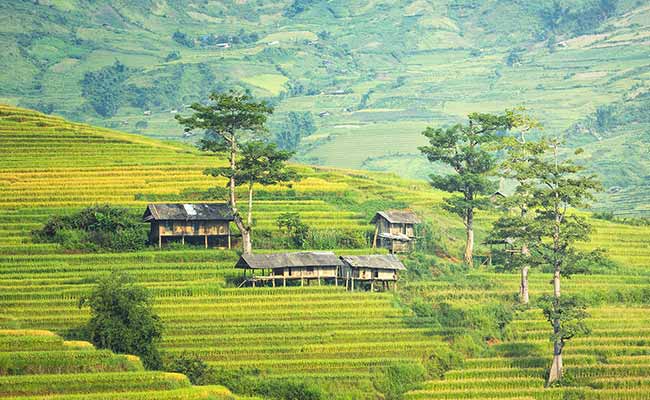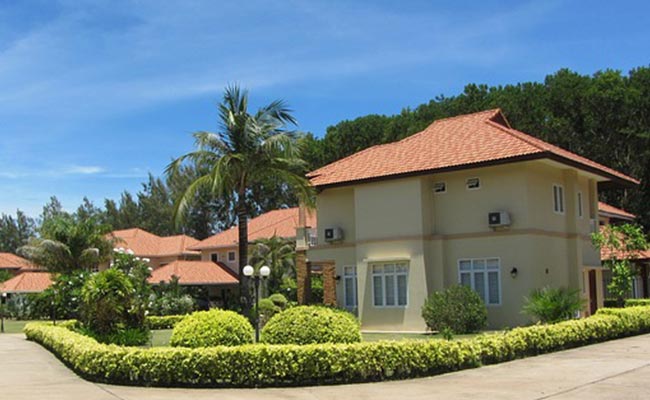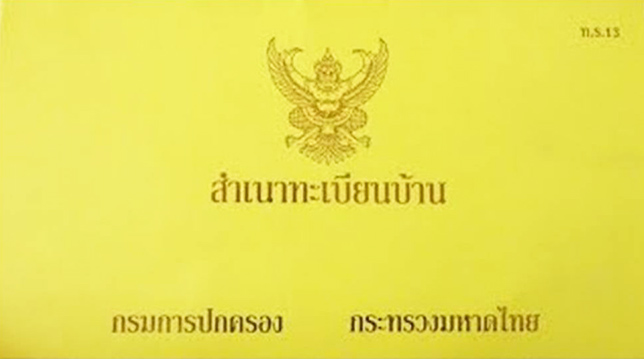A lease agreement in Thailand enables a foreigner to maintain a long term interest in the country through land. Lease permitting, a house can be constructed on the land and registered in the foreigner's name.
A lease arrangement is suited to a number of situations, including:
- Someone who wants to retire in Thailand and construct a house of their choosing on land in a specific area.
- A person who wants to buy land for their Thai partner but wants some control over the land during their remaining years (in this case the Thai spouse would buy the land and lease it to the foreign spouse).
- A couple who want to live near Thai family and decide to lease land from a member of family.
I've discussed land and property ownership previously, and within that briefly covered the lease arrangement. However, it's a subject worthy of its own post – since it begs many questions. So let's look at this in greater detail, without any of the legal jargon you'll find elsewhere.

Why Get a Land Lease in Thailand?
Direct property ownership outside of a condo or housing development purpose built for ownership isn't permitted for foreigners.
Having a lease, typically of 30 years, means you can build a home on the land and live there for the term. Please note that the lease agreement must stipulate that a home can be built on the land.
Moreover, before entering a lease agreement, you must ensure that the land has a deed that permits a dwelling. Some land is reserved for agriculture. See here.
Can a Lease Be Renewed?
30 years is the maximum term. However, a clause can be inserted in the contract that provides the option for a renewal. The renewal must be made before the lease term expires.
Does a Lease Renew Automatically?
No. Even if the option to renew is stated in the contract the lease does not renew automatically.
The renewal clause is considered an option or contract obligation, not a legal right. Therefore both parties have to actively seek to renew the lease and, even then, the final decision is up to the land registrar.
What's the Point of a Lease if You Never Own The Land?
It's a fair point, and it depends on your age and financial situation.
Leasing land will enable you to build a home in the style of your choosing, and fairly cheaply too. You can build a nice house in Thailand for 3 million Baht, and for some that's very affordable. Renting the land will be cheaper than buying it outright,
Moreover, most of those who retire to Thailand do so when over 50 years old, so a 30-year lease with an option to renew works out quite nicely. If you live out your days in the house for 20-30 years, then you've had good use out of it.
What Happens to My Lease if I Die?
It reverts to the lessor, unless you include family members in the contract as co-lessees. That way your family members can carry on the full term of the lease period, should they want to.
What if the Lessor Dies?
The lease will remain valid if the lessor dies, or if the land is sold.
How do I Lease Land in Thailand?
It's pretty straight forward to lease land. You make an agreement with the lessor, ironing out any specific arrangements such as rental costs, building permissions, term, etc., and then go to a lawyer to have the contract drawn up.
If the lease term is to be more than 3 years, then you will need to register it at the Land Office. The lease will then be fixed to the land deed and held at the Land Office.
You will need to apply for a permit to build a house on the land. The property will be registered in your name, as the owner.
Can I Sublet or Transfer My Land Under a Lease?
Subletting to a third party, or transferring ownership of the lease, is not permitted unless stipulated in the lease contract.
Are There Any Fees Involved?
Yes. The Land Office will charge 1% of the rental value of the lease to register the lease.
If you plan to use the land for commercial purposes, then property tax will be due at of 12.5 % of the annual rental value, or the annual assessed rental value, whichever is higher.
Can I Get a Visa Based On Leasing Land?
No. Having a lease or owning a home doesn't guarantee you any sort of visa. You would still need to apply for a retirement visa, a visa extension based on marriage, an Elite visa or other.
—–
Got a specific question I haven't covered here? Leave it down below.
Tips for a Better Life in Thailand
Improve Your Thai Skills:
+ Learning Thai makes life easier and more fun. I use Thaipod101. It is free to get started.
Got Medical Insurance?
+ You should consider it. Get a quote on international cover here.
How Much Does Retirement Cost?
+ Go here to find out how much you need to live in Thailand
Last Updated on



RAYMOND says
Feb 20, 2025 at 1:17 pm
TheThailandLife says
Feb 20, 2025 at 6:38 pm
RAYMOND says
Feb 21, 2025 at 3:46 am
Rob says
And, if they only demand taxes for the first 5 years, does the 'Right to Renew' clause survive as a legally binding part of the Lease Contract in the eyes of the Land Office. And if it does survive and say the owner has passed away, what does the renter have to do in order to exercise their Right to Renew the Lease for another 5 years?
Can one just go to the Land Office before the Lease expires and Register the Lease Renewal?... Or...???
Mar 21, 2024 at 12:04 pm
TheThailandLife says
Mar 21, 2024 at 6:34 pm
CHARLEY MAYNARD says
Mar 14, 2024 at 10:28 pm
jeffrey mellman says
1. What kind of visa does she need?
2. How much time is needed remaining on her Visa?
3. Does she need a local bank account?
4. Anything else?
Feb 16, 2024 at 8:24 am
TheThailandLife says
Feb 16, 2024 at 5:39 pm
Per says
If I do a lease from my girlfriend, can the lease be payed in once and can it be low like 1000 Bath for 30 years?
Can she buy only the land (and lease it to me) and I the house from the seller or in how many step do you do this?
What will the lawyer cost be to fix this?
Regards
Per
Mar 23, 2023 at 4:34 am
TheThailandLife says
Mar 23, 2023 at 5:48 pm
Sabrina Laharnar says
Dec 21, 2022 at 7:00 am
TheThailandLife says
Dec 21, 2022 at 5:46 pm
Sabrina Laharnar says
Dec 22, 2022 at 9:55 pm
Sue says
I have the land in Chingmai , if anyone would like to rent my land for the long lease I would love too .
As the land surrounding by the mountain, near hot spring .
Please contact Sue
Line ID : inkaewna
Jan 05, 2023 at 4:24 am
Tim Cassidy says
Jun 09, 2023 at 10:24 am
Ahmed says
Thanks for the useful info. How much cheaper would a 30 year land lease be vs. buying it outright?
Present value calculations suggest it should be 30% to 35% cheaper vs. the market selling price, assuming full rental payment is made in full at the start of the lease.
Any idea if that is generally the case in Thailand?
Cheers,
Ahmed
Nov 29, 2022 at 5:52 pm
TheThailandLife says
Nov 29, 2022 at 6:21 pm
Jason says
Im looking at some apartments for sale and some have mentioned the lease expires in 5 years time.
Can i still buy the apartment with hopes that the lease will be renewed?
If it is renewable, how much will it cost?
Thanks in Advance!
Sep 05, 2022 at 11:46 am
D. Mackay says
I lease the land from my Thai wife, a 15 year lease and 11 years are remaining. We built a house on the land.
Now she wants a divorce and wants to sell everything and my lawyer is telling me that if the divorce court makes a judgement then the lease has no value and gives me no protection.
This is unbelievable to me.
Jun 27, 2022 at 11:56 am
TheThailandLife says
Jun 27, 2022 at 4:02 pm
D. Mackay says
Thank for your informative reply, I really appreciate it.
Here are some clarifications for you:
My wife does not live with me in the house.
She left me (I think deserted me is more correct) 4 years ago and has never lived in the house. The house wasn't finished 4 years ago. I moved into the house about 3 years ago.
The wife would not be homeless. She has a new foreign man and she wants to marry him so she would qualify for his 2 pensions after he dies.
I don't know my wife's grounds for divorce other than we have been separated in excess of 3 years.
I don't think this is applicable because she deserted me.
Of note, I have not done anything wrong.
I need a Pitbull attorney, do you know of one?
Jun 28, 2022 at 10:58 am
TheThailandLife says
Jun 28, 2022 at 4:32 pm
TheThailandLife says
Jul 06, 2022 at 8:26 pm
Paul says
Kind regards
Jun 22, 2022 at 9:21 pm